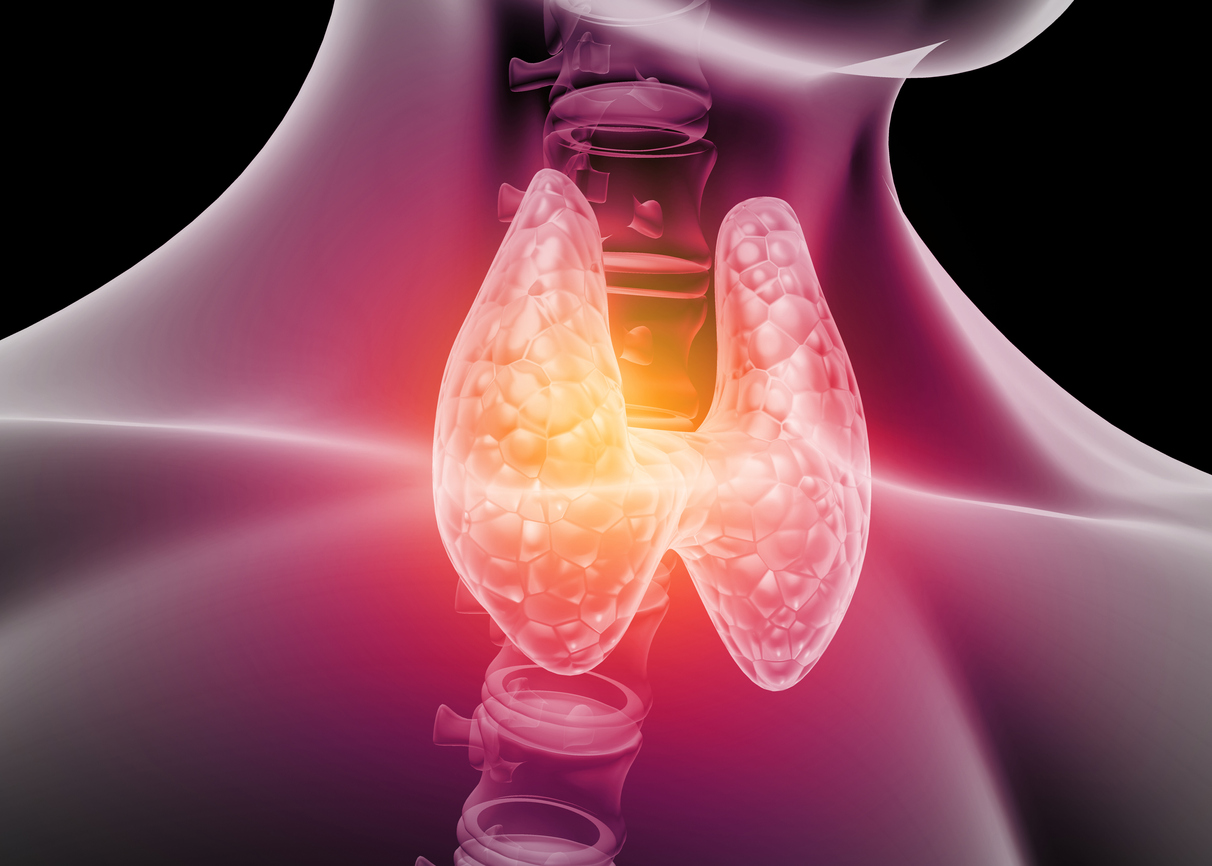Pain
What Is Hypothyroidism?

Hypothyroidism, or underactive thyroid disease, is a common condition that occurs when the thyroid gland does not produce adequate amounts of the thyroid stimulating hormone. Located in the lower front portion of the neck, the thyroid gland releases a crucial hormone that travels through the bloodstream. Thyroid hormones are essential in controlling how cells use energy. Hypothyroidism can impact the body’s general functionality.
Symptoms
Hypothyroid symptoms tend to progress gradually, causing slower awareness. In addition to physical symptoms, hypothyroidism can impact cognitive and emotional regulation. Symptoms associated with hypothyroidism include the following:
- Weight gain
- Fatigue or overall weakness
- Sensitivity to cold
- Slowed speech or hoarse voice
- Hearing issues
- Depression
- Constipation
- Menstrual changes
- Memory problems or trouble thinking clearly
- Brittle nails
- Hair loss or dry hair
- Slower heart rate
- High cholesterol
- High blood pressure
- Shortness of breath during exercise
- Skin changes (cool, pale, dry, itchy, scaly, or yellow)
- Pain, stiffness or swelling in the tongue, face, eyes, muscles or joints
Causes
Congenital hypothyroidism can occur if the thyroid gland does not properly develop or is not fully functional at birth. Other causes of hypothyroidism include the following:
- Thyroiditis
Hashimoto’s thyroiditis is the primary cause of hypothyroidism. This condition is an autoimmune disorder during which antibodies produced by the immune system mistakenly attack the thyroid gland. It causes inflammation of the thyroid gland (thyroiditis); however, a viral infection may also cause thyroiditis. - Pregnancy
For unknown reasons, the thyroid may become inflamed during or after pregnancy causing the thyroid levels to severely increase, and then drop sharply. This is referred to as “postpartum thyroiditis” and usually resolves on its own. If left untreated, hypothyroidism increases the risk of miscarriage, premature delivery, and preeclampsia and can also negatively affect the fetus. - Hypothalamus disorder
This form of hypothyroidism is extremely rare and involves the hypothalamus in the brain not producing adequate amounts of a hormone called TRH (thyrotropin-releasing hormone). TRH regulates the release of TSH (thyroid-stimulating hormone) from the pituitary gland. - Insufficient iodine
Iodine is essential to the body’s ability to produce thyroid hormones. Hypothyroidism can occur or worsen when there is a deficiency of iodine. - Radioactive iodine treatment
Radioactive iodine treatment is often prescribed for an overactive thyroid gland, or hyperthyroidism. It destroys thyroid gland cells, frequently resulting in hypothyroidism. - Pituitary gland disorder
In rare cases, pituitary gland issues may cause hypothyroidism. It typically occurs due to a benign tumor of the pituitary gland. The pituitary gland makes TSH, which, when decreased, will also decrease the amount of thyroid hormone produced by the body. - Radiation therapy to the neck area
Certain cancers, including lymphoma, require the neck to be exposed to radiation. This radiation treatment damages cells in the thyroid, which reduces the production of hormones. - Thyroid surgery
Removal of the thyroid gland causes hypothyroidism. This may be avoided if the entire thyroid gland is not removed. - Medications
Thyroid hormone production can be impacted by the use of certain medications to treat cancer, psychiatric conditions, and heart problems. These medications include amiodarone, interleukin-2, and interferon-alpha.
Risk factors
Increased risk factors of developing hypothyroidism include the following:
- Female
- Existing autoimmune disease
- Previous thyroid surgery (partial thyroidectomy)
- Race (Asian or white)
- Premature gray hair
- Down syndrome
- Bipolar disorder
- Turner syndrome
- Pregnant or delivered a baby within the past six months
- 60 years of age or older
- Radiation to the neck or upper chest area
- Family history of thyroid disease
- Previous radioactive iodine treatment or anti-thyroid medications










